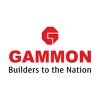
i
Afcons Infrastructure
Proud winner of ABECA 2024 - AmbitionBox Employee Choice Awards
Filter interviews by
Afcons Infrastructure Civil Site Engineer Interview Questions and Answers
Afcons Infrastructure Civil Site Engineer Interview Experiences
2 interviews found
I applied via Campus Placement and was interviewed in Mar 2023. There were 3 interview rounds.

(2 Questions)
- Q1. My name is bashir Ahmed Koka I am from jammu and Kashmir and I have completed my educational specialisation in civil engineering please find enclosed here with my resume for a post at your tunnel site, I h...
- Q2. What is powder factor
- Ans.
Powder factor is the amount of explosive used per unit volume of rock.
It is used to determine the amount of explosive needed for a particular blasting operation.
It is calculated by dividing the weight of explosive used by the volume of rock being blasted.
A higher powder factor means more explosive is needed to break the rock.
Powder factor is influenced by factors such as rock type, density, and desired fragmentation.
It...
(1 Question)
- Q1. About tunneling gandary invort excavation rock bolt
Interview Preparation Tips
- 5 Day
- 6days
I applied via Approached by Company and was interviewed in Mar 2023. There were 2 interview rounds.

(4 Questions)
- Q1. I B. Tech degree I tunnel work for 4 years work experience I hard work of duty
- Q2. I waiting for megha engineering and infrastructure
- Q3. I will b resume send megha engineering and infrastructure and response me
- Q4. I waiting megha engineering and infrastructure
Interview Preparation Tips
- 4 years
Tunnel work
Top trending discussions






Interview questions from similar companies

I applied via Company Website

(6 Questions)
- Q1. The in - person interviews usually begin with a one on one interview with the hiring manager
- Ans. Early interviews are typically one on one in person interviews between the application and the hiring manager.
- Q2. Introduce yourself.
- Ans.
I am a Civil Site Engineer with experience in managing construction projects and ensuring their successful completion.
I have a Bachelor's degree in Civil Engineering from XYZ University.
I have worked on various construction projects, including residential and commercial buildings.
I am proficient in using AutoCAD and other design software.
I have strong project management skills and can effectively coordinate with contra...
- Q3. Helps to make the candidate friendly with the environment.
- Q4. What is safety equipment .use for site.
- Ans.
Safety equipment is used on construction sites to protect workers from potential hazards and accidents.
Personal protective equipment (PPE) such as hard hats, safety glasses, and gloves
Safety harnesses and fall protection systems for working at heights
Earplugs or earmuffs to protect against loud noises
Respirators or masks for protection against dust, fumes, or hazardous substances
Safety signs and barricades to warn and ...
- Q5. What are the standards used for plant layout in reference.
- Ans.
Standards for plant layout in civil engineering include OSHA regulations, industry best practices, and client requirements.
OSHA regulations set guidelines for safety in plant layout design
Industry best practices ensure efficient use of space and resources
Client requirements may include specific equipment placement or workflow needs
- Q6. What we do for shortage of material received.
- Ans.
In case of shortage of material received, we can take the following actions:
Contact the supplier to inquire about the shortage and request immediate delivery of the remaining material.
Check if there are any alternative suppliers who can provide the required material.
Evaluate the possibility of using substitute materials or adjusting the design to accommodate the shortage.
Prioritize the use of available material for cri...
Interview Preparation Tips

Civil Site Engineer Interview Questions & Answers
Kalpataru Projects Internationalposted on 7 May 2024
I applied via Company Website and was interviewed in Apr 2024. There was 1 interview round.
(1 Question)
- Q1. What is the nominal brick size?
- Ans.
The nominal brick size is typically 90 mm x 90 mm x 90 mm.
Nominal brick size is commonly 90 mm x 90 mm x 90 mm.
It may vary slightly depending on the country or region.
Brick sizes are standardized for construction purposes.

Civil Site Engineer Interview Questions & Answers
Shapoorji Pallonji Groupposted on 3 Nov 2023
I applied via Company Website and was interviewed in Oct 2023. There were 3 interview rounds.

Online exam 50 marks in VC.
(2 Questions)
- Q1. Current job responsibilities, CTC.
- Q2. Methodology about Finishing work like Tiles work, Paint, False ceiling.
Interview Preparation Tips

Civil Site Engineer Interview Questions & Answers
Nagarjuna Construction Companyposted on 6 Sep 2023
I applied via Company Website and was interviewed in Aug 2023. There were 2 interview rounds.
Related to auto level and total station one more thing buliding material
(1 Question)
- Q1. About the site work
Interview Preparation Tips
- For leveling

Civil Site Engineer Interview Questions & Answers
KEC Internationalposted on 12 Mar 2023
I applied via Walk-in and was interviewed in Feb 2023. There were 3 interview rounds.

(1 Question)
- Q1. Technical questions and is codes Safety procedures
(1 Question)
- Q1. About past job and salary benifit
Interview Preparation Tips

I applied via Company Website and was interviewed in Oct 2022. There were 3 interview rounds.

(1 Question)
- Q1. What is the is code of concrete cube casting
- Ans.
IS code for concrete cube casting is IS 516:1959
IS 516:1959 is the code for methods of tests for strength of concrete
It specifies the procedure for making and curing concrete test specimens
The standard size of the cube for casting is 150mm x 150mm x 150mm
The cubes are casted in three layers and each layer is compacted 25 times using a standard tamping rod
(1 Question)
- Q1. Slary discussion and allowances discussion
Interview Preparation Tips
- Based on your experience

Civil Site Engineer Interview Questions & Answers
Simplex Infrastructuresposted on 20 Feb 2022
(1 Question)
- Q1. Question about metro projects and pile foundation.
(2 Questions)
- Q1. What are your salary expectations?
- Q2. Why we will hire you?
Interview Preparation Tips

I applied via Naukri.com and was interviewed in Oct 2021. There was 1 interview round.
Interview Questionnaire
2 Questions
- Q1. What is a Foundation
- Ans.
A foundation is a structural element that supports a building or other structure by transferring its load to the underlying soil or rock.
Foundations are typically made of concrete, masonry, or steel.
They are designed to distribute the weight of the structure evenly and prevent settlement or movement.
Different types of foundations include shallow foundations (such as strip footings and mat foundations) and deep foundati...
- Q2. Full name of RCC
- Ans.
RCC stands for Reinforced Cement Concrete.
RCC is a composite material made of cement, sand, aggregates, and steel reinforcement.
It is widely used in construction for its strength and durability.
The steel reinforcement provides tensile strength to the concrete, while the cement, sand, and aggregates provide compressive strength.
RCC is commonly used in the construction of buildings, bridges, dams, and other structures.
Ex...
Interview Preparation Tips
Afcons Infrastructure Interview FAQs
Some of the top questions asked at the Afcons Infrastructure Civil Site Engineer interview -
Tell us how to improve this page.
Afcons Infrastructure Interviews By Designations
- Afcons Infrastructure Senior Engineer Interview Questions
- Afcons Infrastructure Planning Engineer Interview Questions
- Afcons Infrastructure QA QC Engineer Interview Questions
- Afcons Infrastructure Civil Engineer Interview Questions
- Afcons Infrastructure Civil Execution Engineer Interview Questions
- Afcons Infrastructure Civil Foreman Interview Questions
- Afcons Infrastructure Site Engineer Interview Questions
- Afcons Infrastructure Store Keeper Interview Questions
- Show more
People are getting interviews through
Civil Site Engineer Interview Questions from Similar Companies
Fast track your campus placements
Afcons Infrastructure Civil Site Engineer Reviews and Ratings
based on 17 reviews
Rating in categories
|
Senior Engineer
432
salaries
| ₹5 L/yr - ₹19 L/yr |
|
Planning Engineer
203
salaries
| ₹4.3 L/yr - ₹13 L/yr |
|
Civil Engineer
187
salaries
| ₹2 L/yr - ₹11 L/yr |
|
Executive Engineer
171
salaries
| ₹3.5 L/yr - ₹11.9 L/yr |
|
Engineer
163
salaries
| ₹3.5 L/yr - ₹10.1 L/yr |

Larsen & Toubro Limited

Tata Projects

Shapoorji Pallonji Group

GAMMON INDIA
Calculate your in-hand salary
- Home >
- Interviews >
- Afcons Infrastructure Interview Questions >
- Afcons Infrastructure Civil Site Engineer Interview Questions







